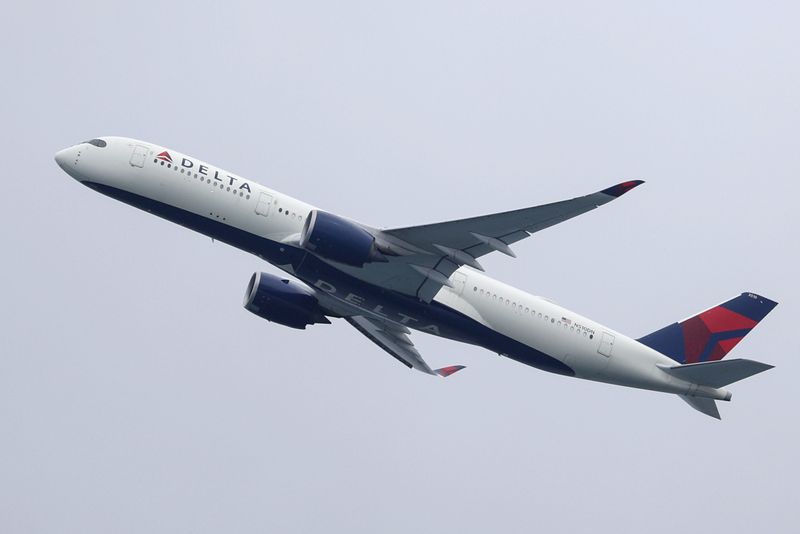(Reuters) - Delta Air Lines (NYSE:DAL) said on Thursday it would spend more than $30 million to offset 13 million metric tons of carbon emissions over 10 months last year as part of its pledge to help combat climate change.
Delta said it had also cut emissions by retiring more than 200 older aircraft early in 2020 as it dealt with a plunge in demand from the coronavirus pandemic. Replacement planes will be 25% more fuel efficient, the U.S. airline said.
Delta in February 2020 announced plans to invest $1 billion over the next decade in initiatives like offsets, sustainable aviation fuel and carbon sequestration that would limit the impact of global air travel on the environment, the first airline to make a commitment of that scale.
That followed moves in Europe by easyJet (LON:EZJ) to offset emissions on all flights and British Airways and Air France on domestic flights.
The amount Delta plans to pay for offsets from March 1 to Dec. 31 would equate to less than 0.35% of its revenue during the period, based on Reuters calculations using its financial results from April 1 to Dec. 31.
Delta said the carbon tonnage offset was equal to the carbon sequestered by 17 million acres of U.S. forests in one year, enough to cover the state of West Virginia.
U.S. airlines are under pressure by the Biden administration to do more to reduce emissions.
The CEOs of major carriers met with White House officials last Friday to discuss tackling aviation pollution and urge U.S. support for greener aviation fuel.
United Airlines has committed to a multimillion-dollar investment in carbon capture, a technology designed to suck carbon dioxide from the atmosphere, as part of a plan to be 100% green by 2050.
Delta said it also believed carbon capture had significant potential.

Delta uniquely among its peers owns its own oil refinery, which in early January posted a $102 million refining segment loss in the fourth quarter and a $441 million loss on third party fuel sales.